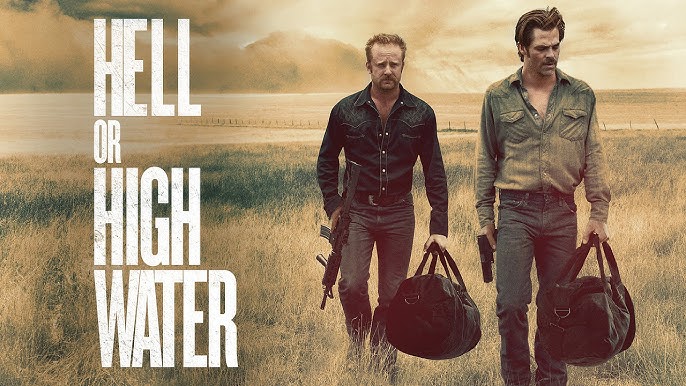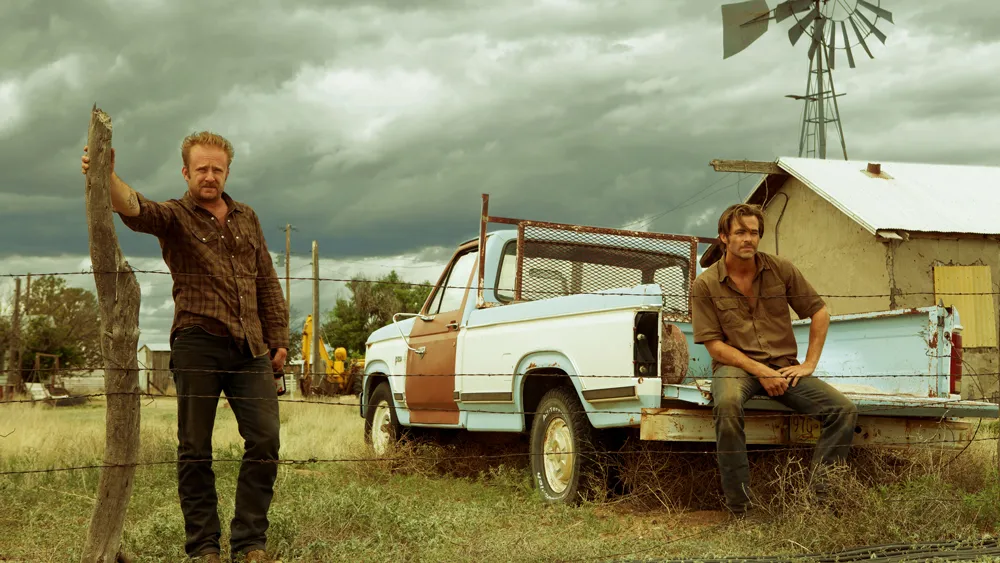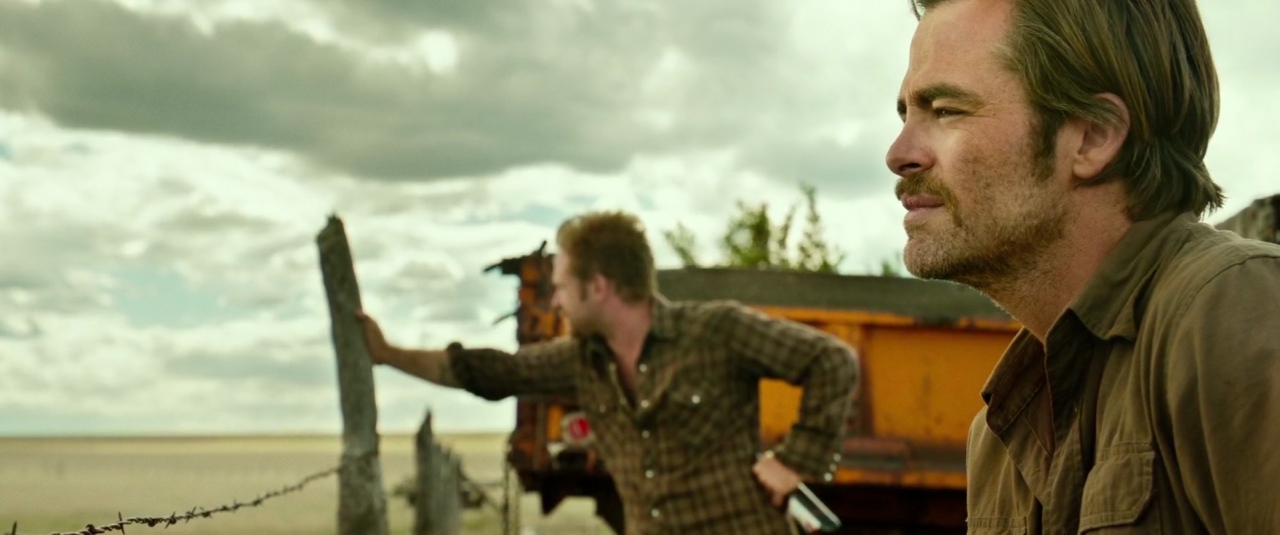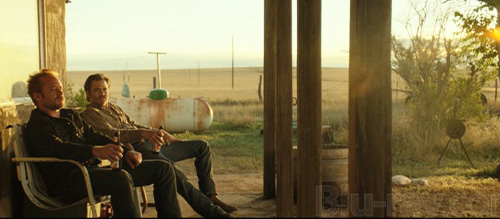Hell or High Water (2016)

Hell or High Water (2016), directed by David Mackenzie and written by Taylor Sheridan, is a modern Western that blends sharp social commentary with a gripping crime drama. Set against the backdrop of economically struggling West Texas, the film follows two brothers embarking on a series of bank robberies to save their family ranch while being pursued by a relentless Texas Ranger. With its richly drawn characters, poignant storytelling, and stunning cinematography, the film examines themes of family, loyalty, and the enduring struggles of the American working class.
Toby Howard (Chris Pine), a divorced father, and his volatile ex-convict brother, Tanner (Ben Foster), are driven to desperate measures after their late mother’s ranch falls into the hands of a bank threatening foreclosure. To reclaim the property and provide a future for Toby’s sons, the brothers hatch a risky plan: robbing branches of the same bank that holds their family’s debt. Their methodical approach involves stealing small amounts of cash to avoid large-scale attention, but Tanner’s unpredictable behavior often complicates their missions.
On their trail is Marcus Hamilton (Jeff Bridges), a grizzled and soon-to-retire Texas Ranger with a sharp wit and a knack for profiling criminals. Accompanied by his younger partner, Alberto Parker (Gil Birmingham), Marcus methodically pieces together the brothers’ motives and next moves. The dynamic between Marcus and Alberto is one of the film’s highlights, blending humor, camaraderie, and moments of quiet introspection as they navigate the moral complexities of their pursuit.
The film’s narrative is propelled by the tension between the brothers’ escalating heists and the Rangers’ pursuit, culminating in a series of confrontations that reveal the personal stakes driving each character. Tanner’s recklessness contrasts with Toby’s calculated determination, and their bond is both their greatest strength and vulnerability. The brothers’ actions are framed not as mere criminality but as a desperate response to systemic inequities, adding layers of empathy and nuance to their plight.
Hell or High Water excels in its portrayal of the West Texas landscape, captured through Giles Nuttgens’ evocative cinematography. The sweeping vistas and small-town decay serve as both a setting and a character, reflecting the socioeconomic struggles that underpin the story. The film’s sparse, haunting score by Nick Cave and Warren Ellis underscores the mood, blending melancholic tones with moments of intensity.
The performances are universally outstanding. Chris Pine delivers a career-best performance as Toby, portraying him as a man driven by quiet desperation and unwavering resolve. Ben Foster’s portrayal of Tanner is magnetic, capturing the character’s reckless charm and deep-seated pain. Jeff Bridges is equally compelling as Marcus, infusing his character with a mix of gruff humor and poignant reflection. Gil Birmingham provides a grounded and empathetic counterbalance to Bridges, offering moments of insight that deepen the film’s exploration of justice and morality.
What sets Hell or High Water apart is its ability to weave personal and societal narratives into a cohesive whole. It’s a story about family and sacrifice, but it’s also a critique of economic disenfranchisement and the predatory practices of financial institutions. The brothers’ struggle against the bank is symbolic of a broader fight against systemic forces that exploit the vulnerable, resonating with contemporary audiences.
The film received widespread acclaim for its screenplay, direction, and performances, earning multiple Academy Award nominations, including Best Picture. Its blend of taut storytelling, rich character development, and social relevance makes it a standout in the neo-Western genre.
At its core, Hell or High Water is a powerful meditation on the lengths people will go to protect what matters most to them. It’s a film that combines action and introspection, delivering a poignant and unforgettable cinematic experience. Its exploration of loyalty, justice, and survival in a changing world ensures its place as a modern classic.











